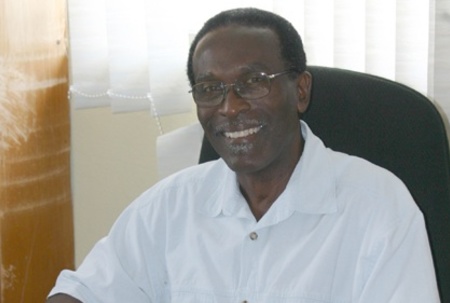(Barbados Today) – Instead of ‘cutting’ the wages of public servants, Government should look to print money in the short to medium-term.
That is the view of economist Professor Michael Howard, who believes that workers in the public service can ill afford to have their salaries reduced at this time.
Last week, Prime Minister Mia Mottley announced that discussions had taken place at the level of the Social Partnership regarding the implementation of “forced savings” to allow Government to reduce its expenditure.
“We do have to cut expenditure. We do not want to cut jobs and some form of burden-sharing is appropriate,” Mottley said at the time.
However, in an interview with Barbados TODAY, the Professor Emeritus in Economics at the University of the West Indies, Cave Hill Campus, said printing money was the way to go.
While he admitted that Government was between a rock and a hard place, he contended that “struggling” workers would face even more hardship with a forced savings option.
Professor Howard said Government spent an estimated $60 million monthly paying the wages of public servants.
“My suggestion is that rather than go those routes and try to cut wages and so forth, they have to print money for the next few months, while still offering welfare services to people because people are suffering,” Professor Howard said.
“At a point in the future you would reduce the money printing as the economy starts to grow and businesses start to recover and taxes start to creep back up.
“If I was the Government I would try to hold off the forced savings. A lot of the public servants have a lot of dependents and it would affect a lot of people so I don’t know if Government should go down that route,” he added.
Professor Howard said he would also advise Government against further taxation to recoup lost revenue.
“I could understand that the Government finds itself in a position where it has lost $450 million in taxation and it is still looking to reduce the deficit which it might face as a result of this pandemic.
“I don’t think that they can impose anymore taxation on people. The tourism industry isn’t there so you can’t get taxes from that and already the VAT is high. You have the water bill tax and you have these other taxes which are serious impositions and this is why Government is looking to reduce expenditure,” he explained.
Professor Howard said he was not surprised public servants were already up in arms over the possibility of having reduced incomes.
He explained the COVID-19 pandemic had been hard on everyone and workers were unsure if those forced savings would be repaid in the future.
“Right now everybody is suffering because of the combined effects of the IMF programme and COVID-19, as well as the debt restructuring. I could understand very well why public servants would resist what is equivalent to a pay cut at this time because no one knows whether the forced savings will be paid back in the future so there is uncertainty,” he noted.

